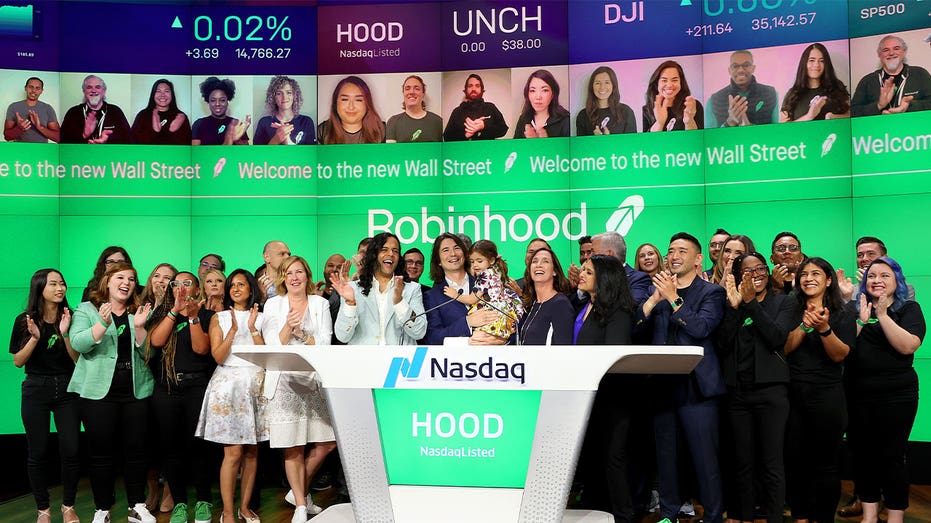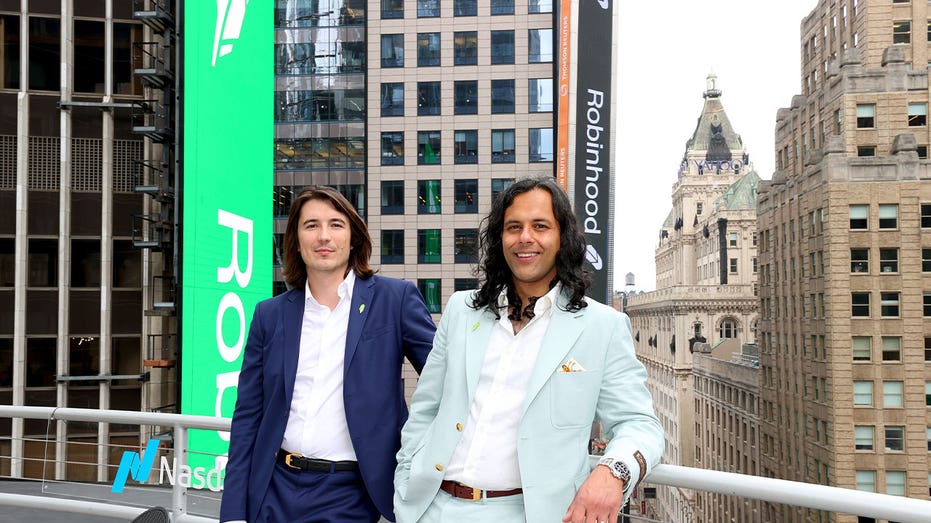Day traders go back to their day jobs as stock market swoons
Individual investors are placing fewer trades at Charles Schwab, Morgan Stanley and Robinhood
Market expert: Robinhood democratized investing
Strategic Wealth Partners' Mark Tepper argues the markets are in a 'difficult position' at the moment and discusses Robinhood preparing to launch retirement accounts.
The pandemic day-trading boom has gone bust.
A swooning stock market and high inflation have sapped individual investors’ enthusiasm for buying and selling stocks. That was on display in earnings reports and financial disclosures from some of the biggest retail brokerages in recent weeks.
The average daily number of retail trades handled by Charles Schwab Corp. fell to 5.52 million in the third quarter, the lowest level since it acquired TD Ameritrade Holding Corp. in late 2020. At Morgan Stanley, retail traders placed an average of 805,000 trades a day in the third quarter. That was down 16% from a year earlier and the lowest level since the investment bank bought E*Trade Financial Corp. in late 2020.
Those activity levels are well off highs notched at the zenith of the meme-stock era, when individual investors drove rallies in the share prices of companies including GameStop Corp. In the first quarter of 2021, Schwab reported 8.41 million daily average trades, while Morgan Stanley reported 1.62 million.

In this photo provided by the New York Stock Exchange, specialist Stephen Naughton works at a post on the trading floor, Monday, Feb. 1, 2021. (Nicole Pereira/New York Stock Exchange via AP)
| Ticker | Security | Last | Change | Change % |
|---|---|---|---|---|
| SCHW | THE CHARLES SCHWAB CORP. | 105.06 | +3.06 | +3.00% |
| MS | MORGAN STANLEY | 179.97 | +4.17 | +2.37% |
| GME | GAMESTOP CORP. | 24.99 | +0.32 | +1.30% |
"Obviously, we’re seeing some decreased level of transactional activity," said Andy Saperstein, Morgan Stanley’s co-president and head of wealth management, at an investor conference in September. "But really nothing that I would say is either surprising or anything but rational if you have a market like this."
At Robinhood Markets Inc., the go-to trading app for young investors, July was the weakest month for average daily volume for stocks and options trading in company records going back to March 2021. The company saw a slight rebound in August, the most recent month for which data are available.
Robinhood Chief Executive Vlad Tenev said at the September investor conference that the company’s customers care about different things this year compared with one or two years ago, citing Google Trends searches as a good proxy.
"2020 and 2021, people were really interested in investing in stocks," Mr. Tenev said. "There was widespread participation in the stock market. Now people are talking about gas prices and inflation."

Baiju Bhatt and Vlad Tenev celebrate after ringing the bell on Robinhood Markets IPO Listing Day on July 29, 2021, in New York City. (Cindy Ord/Getty Images for Robinhood / Getty Images)
BEST ETFS FOR DEFENSIVE STOCKS
Some stocks can still fluctuate based on the sentiment of the meme-stock crowd. Shares in Bed Bath & Beyond Inc. and AMC Entertainment Holdings Inc. skyrocketed in August after individuals purchased stocks and bullish call options, though those gains have been erased since then.
| Ticker | Security | Last | Change | Change % |
|---|---|---|---|---|
| HOOD | ROBINHOOD MARKETS INC. | 82.82 | +10.14 | +13.95% |
| BBBY | BEYOND INC. | 5.47 | +0.31 | +6.01% |
| AMC | AMC ENTERTAINMENT HOLDINGS INC | 1.49 | +0.09 | +6.05% |
Robinhood, which doesn’t report its third-quarter earnings until next month, has been cutting costs in response to lower volumes. In August, the company said it would cut about 23% of its full-time staff, its second round of layoffs this year, citing "additional deterioration of the macro environment," including what has been a 40-year high in inflation.
CLICK HERE TO GET THE FOX BUSINESS APP

Vlad Tenev and Baiju Bhatt attend Robinhood Markets IPO Listing Day on July 29, 2021, in New York City. (Cindy Ord/Getty Images for Robinhoo / Getty Images)
"Last year, we staffed many of our operations functions under the assumption that the heightened retail engagement we had been seeing with the stock and crypto markets in the Covid era would persist into 2022," Mr. Tenev wrote in an August blog post. "In this new environment, we are operating with more staffing than appropriate."




















